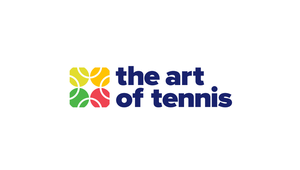How parents can help their kids by not helping too much

Every parent wants to see their kids do well at their sports activities. It is only natural to want to see them learn the right technique, make the right decisions and get their body and mind into the right condition to succeed in whatever athletic endevour their kids are involved in.
My experience over the last 15 years working with junior tennis players has given me an insight into how parents can best help their kids. There is a fine line between interested and passionate about watching their child play vs actually crossing the line to being their coach and consultant.
Parents who take on a coach/consultant role have the very best intentions and want to see the best from their child. Through taking an interest in advising their child, they see that they, as a parent, can make a difference. This can sometimes have short term benefits but negative medium and long term consequences. A parent taking on the volunteer role of a coach of a junior team is a different situation so I am mostly referring to an individual sports like tennis.
The downsides are as follows;
Lack of self discovery and independence
By always showing their child what to do, how to do and when to do it, the child doesn’t benefit from the opportunity of discovering how to do it themselves and can become reliant on their parent’s advice. Even as their coach, it is important that we set up scenarios that the child feels like their learning has been discovered by them not spoon fed by their coach or parent. For the long term benefit of a junior athlete, they should become independent in their thinking, learning and performance.
Lack of resilience
If a parent is always either on the court or court side then the child will again never build the resiliance of fighting their own battles. They can then look to their parents in the tough times and never face the lonely adversity that tennis players in particular have to face on court by themselves, solving problem after problem.
Lack of parent/child relationship
The risk of the child losing mum or dad as their parents but instead spending more time with a coach/consultant who looks like their mum/dad. This creates an unhealthy sport/life balance and kids just want their parents to be parents.
Dropping out risk
The risk of dropping out is huge. If sport loses its fun and a young athlete is under scrutiny all the time about their performance then the drop out risk becomes sky high. This article about dropping out and “The ride home” is a good one explaining how parents can impact the longevity of their child playing sport.
So the best way parents can help their kids is by actually not helping them too much. Another example would be with an academic problem such as a math equation. Most people would agree that to do the math problem for your child would not be helpful to them but if they start to understand the problem themselves then they can problem solve better for the future.
I think it is great to have parents interested in their child’s sport. Some of the traits of a great parent (from a tennis coach perspective) are:
- Enthusiasm and enjoyment watching their child’s tennis.
- Playing tennis themselves (kids love seeing their parents play with other adults).
- Reinforcing things that their tennis coach has explained. This is better in question format “What would coach say about your warm up?”
- Watching professional or high level tennis with their kids live or on TV.
- Encouraging all the good habits that come from tennis (that are not results based) such as good sportsmanship, effort, determination and teamwork.
So it is true that parents can help their kids by not helping too much. If the coach and parent create an environment which can facilitate learning then this is where the child can really flourish.
Below is one of my favourite quotes which helps supports this philosophy.
Regards
Rick Willsmore
Director
Scarborough Tennis

















